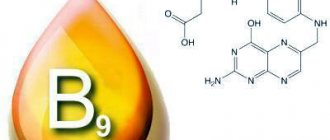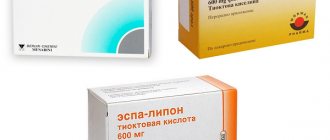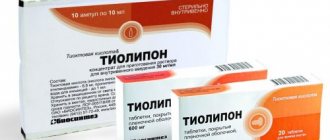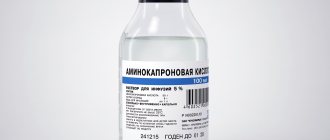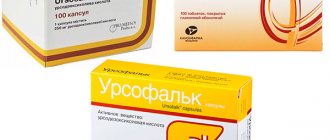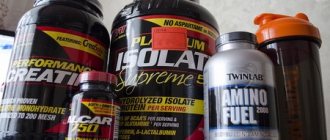Alpha lipoic acid, lipoic acid, vitamin N - these different terms refer to the same beneficial micronutrient. So, get acquainted - lipoic acid is a fat-soluble vitamin found in many foods and plants. It is widely used by doctors to treat problems in the liver, regulate the metabolism of proteins, fats, carbohydrates, and the breakdown of glucose. Lipoic acid helps remove toxins, waste, bile, and can replace insulin for diabetics.
Alpha lipoic acid supports the body's strength, for example, during periods of stress, psycho-emotional stress, and sports. Thanks to vitamin N, the human immune system begins to work better, the risk of stroke decreases, and pain decreases. Lipoic acid is a powerful antioxidant, an enemy of cholesterol.
Vitamin N, like l-carnitine, is taken by those who want to lose weight. There are types of supplements that contain both of these elements or each separately. Lipoic acid and carnitine work well together - the first improves carbohydrate metabolism, the second increases the rate of muscle recovery after training. The combination of alpha-lipoic acid and l-carnitine will improve overall well-being, invigorate, and relieve fatigue.
Vitamin N is used in medicine in the treatment of Alzheimer's disease, diabetes, liver problems, and metabolism. Alpha lipoic acid interacts well with B vitamins, but drinking alcohol, fatty foods, and drugs containing sugar reduces all the benefits.
The daily intake of alpha lipoic acid in foods or tablets varies greatly, from 0.5 to 30 mg. The exact dose is prescribed by the doctor.
Properties
This vitamin is actively involved in the processes of vital biological oxidation, saturating the body with quality energy, as well as the absorption of carbohydrates and proteins. Lipoic acid is generously endowed with the properties of B vitamins:
- works well in breaking down glucose;
- actively supplies the cells of the brain and motor system with the necessary oxygen;
- perfectly regulates (and adjusts) metabolic processes;
- gently removes bile and accumulated toxins from the body;
- actively helps reduce cholesterol levels.
What foods contain lipoic acid - table. alpha lipoic acid in food
Lipoic acid (thioctacid, vitamin N) is a vitamin-like compound that performs many vital biological functions. This substance was first isolated in 1948 from beef liver tissue. A few years later, scientists found a way to synthesize lipoic acid artificially.
In the course of numerous studies aimed at determining the biological role of vitamin N, it was found that the human body has the ability to produce it independently, but in small quantities. The main source of lipoic acid entering the organs and tissues of the human body is food.
Vitamin N plays a truly important role in ensuring the vital functions of the body. In particular, this connection:
- is a powerful antioxidant, helps prevent the development of cancer, slows down the growth of tumor tumors;
- prevents the occurrence of malfunctions in the liver, protects its tissues from damage, and prevents the occurrence of fatty hepatosis;
- activates the processes of providing brain tissue with oxygen;
- regulates protein, lipid and carbohydrate metabolism;
- takes part in the processes of glucose breakdown;
- reduces the concentration of sugars in the blood;
- accelerates the separation of bile, thereby facilitating its effective removal;
- prevents the development of disorders in the central nervous system;
- protects vascular walls from damage, avoids the development of cardiac diseases;
- strengthens the immune system;
- prevents the development of disturbances in the functioning of the visual apparatus;
- is an excellent antispasmodic;
- increases the antioxidant properties of other substances (vitamin E, ascorbic acid, etc.);
- reduces the risk of strokes;
- effectively reduces the concentration of cholesterol in the blood;
- helps fight the manifestations of Alzheimer's disease;
- recognized as one of the insulin substitutes;
- present in the composition of individual enzymes;
- prevents the development of gallstone disease;
- slows down the formation of atherosclerotic plaques in the lumens of blood vessels;
- effectively removes toxins and heavy metals from the body;
- reduces the harmful effects of chemotherapy on organs and tissues;
- increases physical endurance;
- slows down processes associated with tissue aging;
- reduces the negative effects of stress.
In addition, lipoic acid significantly improves concentration, the ability to remember information, increases performance and helps get rid of the manifestations of chronic fatigue syndrome.
Benefit
The beneficial properties of lipoic acid are still being studied. To date, it has been found that it is a powerful antioxidant that slows down the aging process in the body and suppresses the formation of free radicals.
It is able to penetrate every cell of the body and protect them from radical damage and, as a result, from various pathologies. The substance enhances the antioxidant effect of vitamin C, E and coenzyme Q10.
Thanks to this property, lipoate has a beneficial effect on the body:
- Preparations with lipoic acid are prescribed to people with diabetes. It has been proven that the substance reduces the need of body cells for glucose and increases their susceptibility to it. It also helps maintain normal blood glucose levels.
- Athletes and people who exercise frequently take this drug because it improves metabolism and helps build muscle mass . When combined with intense training, lipoate helps you burn fat faster and release more energy, thereby helping you achieve your desired shape.
- If you don’t want to build up muscles, but want to reduce volume and lose weight, then you should take the drug according to a certain regimen, which should be prescribed by your doctor. Due to the fact that lipoate improves metabolism, it is able to increase the digestibility of carbohydrates and prevent them from being deposited in excess fat on the body.
- Lipoic acid is important in the treatment of liver diseases. It is prescribed for viral hepatitis B and C, cirrhosis and fatty liver, liver failure, non-alcoholic steatohepatitis. The drug improves the functioning of the organ, inhibits the development of fibrosis and malignant tumors, thanks to its antioxidant properties, normalizes fat metabolism in liver cells and stops inflammatory processes.
- Lipoate improves body tone and prevents the development of many aging diseases , including Parkinson's, Alzheimer's, dementia, etc. The drug is prescribed for chronic fatigue, stress, decreased memory and attention. The drug is also able to prevent glaucoma and cataracts, which develop mainly in old age.
- The substance is capable of binding salts of heavy metals and removing them from the body . Therefore, its use is prescribed for severe intoxication of the body, including alcohol and drugs.
- Lipoic acid is similar in effect and structure to vitamin B, so it is often prescribed for diseases of the nervous system and cardiovascular pathologies. It helps normalize blood pressure , improve vascular permeability, and eliminate numbness in the limbs.
Source: https://GolovaNeBoli.ru/diabet/v-kakih-produktah-soderzhitsya-lipoevaya-kislota-tablitsa-sport-at-home.html
How much acid do you need?
There are no clear and globally described daily doses of lipoic acid for humans, since the body produces this substance differently at different times. Many experienced doctors can only recommend optimal dosages:
- the daily requirement of an adult healthy body for the mentioned substance ranges from 10-50 mg;
- Adults with liver problems should take up to 75 mg of acid under the supervision of a doctor;
- for diabetics, this figure increases to 200-600 mg per day;
- for pregnant women – 45-70 mg;
- for children under 13 years of age - from 1 to 10 mg;
- Teenagers should consume no more than 20-25 mg of acid.
Main functions
Alpha lipoic acid plays a significant role in metabolism, as it is involved in the following functions:
- Antioxidant. Free oxygen radicals, accumulating in excess on the surface of cell membranes, destroy them, penetrate inside, destroy the structure of the DNA molecule, block ATP synthesis in mitochondria and cause premature death of the entire cell. Thioctic acid is able to resist this effect, thereby preventing the aging process in the body, as well as strengthening its protective mechanism.
- Acceleration of aerobic metabolism. With a lack of alpha lipoic acid, the anaerobic threshold increases, and lactic acid begins to accumulate in blood cells. This leads to a decrease in the amount of energy in the body.
- Improving glucose absorption and potentiating insulin production. The combination of these properties allows the use of thioctic acid in the treatment of diseases such as diabetes.
L-carnitine
Another vitamin-like substance and ally of the above is L-carnitine, which is also synthesized in the body in small quantities and is an anabolic and a natural activator of fat metabolism, appetite and cell regeneration. This substance is often used to gently correct the body's metabolic processes.
The optimal content of lipoic acid and L-carnitine in the body guarantees a smooth metabolism, restoration of vitality and a stable level of coenzyme A. You can replenish the reserves of the above-mentioned substances using tablets (injections). But drugs are not the best solution. Therefore, we suggest that you study which foods contain lipoic acid and L-carnitine.
Additional tips and advice
Vitamin N is available as dietary supplements, tablets and injections . "Tioctacid" is administered intravenously and intramuscularly, also orally.
Dragees are usually available in a dosage of 12 mg, they are yellow or greenish in color, film-coated.
The use of lipoic acid as a source of additional nutrients is popular among athletes who want to increase muscle mass and reduce body fat.
Their dosages depend on the purpose of the load. Lipoic acid is consumed together with carnitine: vitamin N improves carbohydrate metabolism, and carnitine helps muscles recover faster, overall well-being improves and fatigue goes away.
Although vitamin N is not one of the most popular among people, along with vitamins C, D and group B, it is an equally important element for the proper functioning of all body systems, so you should not ignore it.
Taking vitamin N in the right dosage and in combination with other vitamins will help you maintain good health longer.
Weight loss
Often, many girls who want to naturally lose extra pounds begin to study which foods contain lipoic acid. To lose weight, the average person can do without artificially synthesized substances. How? You just need to supplement your diet with foods high in lipoic acid. But those suffering from obesity need to work out their diet with an experienced doctor and discuss the possibility of using pharmaceutical capsules with this substance.
Lipoic acid is found in sufficient quantities in foods; you just need to replace snacks with buns or sweets with green vegetables. Also, of course, it is worth adding spinach to salads, which is the richest source of this substance.
But most of all, the question “which foods contain lipoic acid” is asked by athletes and their coaches. It is this substance and L-carnitine that allow them to naturally increase endurance and at the same time quickly recover after strenuous training.
Let's make a rating of products containing this substance
The absolute record holder is beef liver, which contains about 7 mg of this acid per 1 kg. Behind it are by-products, where the concentration of Alpha-lipoic acid reaches 1 mg/kg. Beef meat ranks third, with about 725 mcg/kg. Milk contains from 500 to 1300 mcg/kg. Significantly less Alpha Lipoic Acid in plants. Thus, rice contains up to 220 mcg/kg, white cabbage - 150, spinach - 100 mcg/kg. Small amounts of lipoic acid are found in beets, carrots, broccoli, potatoes and yeast.
However, such a low content of it in food makes it difficult to compensate for the deficiency of alpha-lipoic acid only by consuming it with food. A healthy person needs 10-15 mg of this substance daily . Theoretically, this amount of Lipoic acid is contained in 2 kg of beef liver or 15 kg of spinach, but can you really eat that much? And how much would such a diet cost?
Therefore, it is much easier to use Alpha Lipoic Acid in the form of a dietary supplement. Thus, you can constantly receive the required amount and not exhaust yourself with a monotonous menu. In addition, since the drug is 100% natural, its absorption by the body is much higher than if the substance is ingested with other foods.
Diseases that lipoic acid fights
How many kilograms will lipoic acid help you lose?
Alpha lipoic acid, also known as thioctic acid or vitamin N, belongs to a group of conditional vitamins that can resist active oxygen ions that destroy cell membranes. This substance also enhances the action of insulin.
Vitamin N is considered conditionally essential, since it is synthesized by the human body in a minimal amount, which can only prevent deficiency. The rest comes from food or in the form of medicines.
The main purpose of alpha lipoic acid is to accelerate energy production processes in the body.
It potentiates the effect of almost all vitamins, and is also easily absorbed by brain neurons and liver hepatocytes.
Alpha lipoic acid, also known as thioctic acid or vitamin N
Medicines
Alpha lipoic acid preparations are available in the form of tablets and capsules, the dosage of the active substance in which is 100 mg, 200 mg or 600 mg. Only a doctor can choose the right dose. Therefore, you should not self-medicate and prescribe medications that, if used incorrectly, can cause harm.
You should know that you should take thioctic acid at least an hour before meals or 2 hours after consuming food.
Among manufacturers of alpha-lipoic acid and its analogues, the Solgar brand is especially popular. The product is available in the form of tablets with a dosage of 60, 120 and 600 mg.
Solgar alpha lipoic acid is used for:
- diabetes mellitus;
- nervous disorders;
Solgar alpha lipoic acid
- hepatitis;
- pancreatitis;
- dermatitis;
- liver cirrhosis or fatty degeneration;
- poisoning;
- coronary atherosclerosis;
- during the period of weight loss.
Numerous customer reviews indicate the high effectiveness of this product.
For hepatitis you need to take alpha lipoic acid
But, despite the positive effect, Solgar alpha-lipoic acid also has its contraindications, which include:
- individual intolerance;
- age up to 16 years;
- the occurrence of an allergic reaction.
Pregnant and nursing mothers are not recommended to take dietary supplements. An exception can only be made by the attending physician after conducting appropriate laboratory tests.
general information
Other names for alpha lipoic acid are thioctic acid, vitamin N. On nutritional supplement packaging, the substance is often designated by the Latin letters ALA (an abbreviation for alpha lipoic acid). It is important not to confuse the compound with alpha-linolenic acid, which has the same abbreviation, but denotes a completely different molecule from the Omega unsaturated group.
Lester Reed
The history of studying the active compound began back in 1937, when American chemists, while studying the type of nutrition of microorganisms, discovered that their increased reproduction was observed when potato extract was added to the nutrient medium. They called this unknown enzyme potato growth factor. Fourteen years later, Lester Reed began studying the chemical properties of the active compound and isolated a pure vitamin molecule, which he called lipoic acid (the name comes from the Greek word lipos, “fat”). During a detailed analysis of the composition of the vitamin-like compound, sulfur was discovered in it, which allowed biochemists to give another name - thioctic acid (derived from the Greek name for sulfur). In the 80s, interest in this acid was renewed; scientists discovered a unique ability to neutralize free radicals. Since that time, the substance has been actively used in medicine.
Healthy Origins, Alpha Lipoic Acid, 600 mg, 150 Capsules
1 760 ₽
Buy at a discount
What does the prefix "alpha" mean?
The Latin letter "alpha" preceding the chemical name of a compound indicates the position of the carboxyl group (-COOH-) in the compound molecule.
The names used in the literature - lipoic and alpha-lipoic - are synonyms and imply the same substance.
